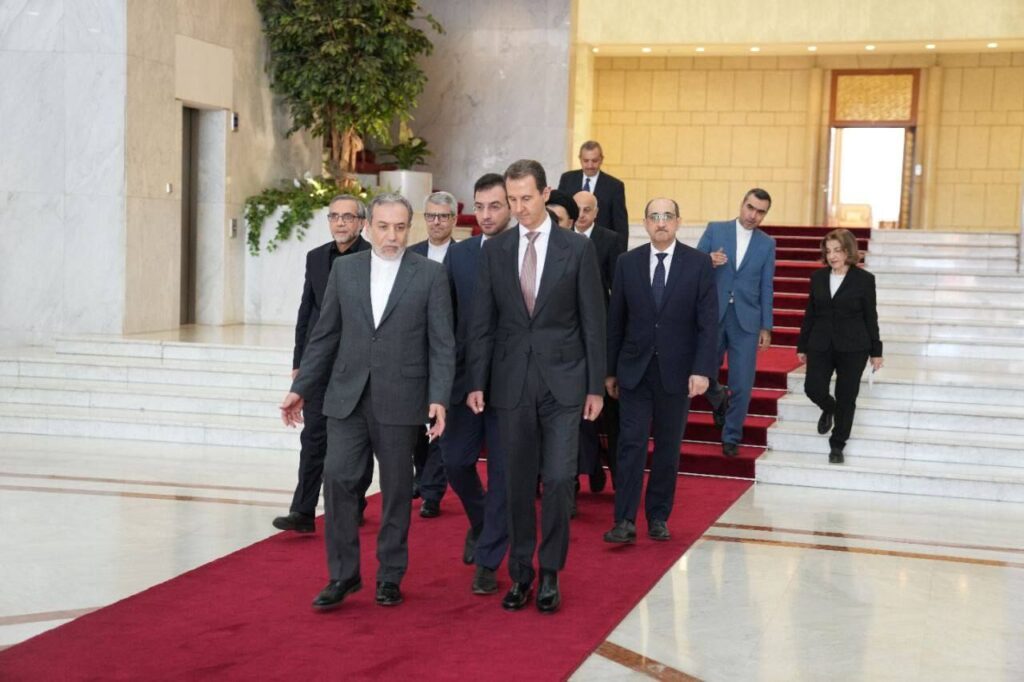Iran’s Diplomatic Mission in Syria: A Strategic Consultation Amidst Regional Tensions
In the wake of escalating tensions in the Middle East, Iran’s Deputy Foreign Minister Abbas Araghchi made a pivotal visit to Syria, underscoring the strengthening of bilateral ties and prioritizing regional stability. This visit highlights the interconnectedness of regional geopolitics, with a special emphasis on the Iranian-Syrian alliance.
Iran’s Strategic Delegation to Syria
Esmail Baqaei, spokesperson for the Ministry of Foreign Affairs of Iran, announced on social media platform X that a high-profile Iranian delegation, led by Deputy Foreign Minister Abbas Araghchi, landed in Damascus early this morning. The visit is a crucial step in Tehran’s ongoing diplomatic efforts to bolster alliances against a backdrop of complex and evolving regional dynamics.
Focus of Bilateral Relations
The visit comes amid rising tensions and shifting alliances in the Middle East, with Iran and Syria at the forefront of regional political discourse. High-level talks between Araghchi and Syrian officials are expected to cover a range of topics, including bilateral relations and joint responses to regional security threats.
Historically, Iran and Syria have maintained a strategic partnership, particularly in countering Western influence and opposition forces. This longstanding alliance has been crucial in regional conflicts, such as the Syrian Civil War, where Iran has provided military and economic support to the Syrian government.
Regional Security Concerns
Araghchi’s visit underscores the urgency for diplomatic dialogues in response to increasing violence involving Israel, Lebanon, and Gaza. Upon his arrival at Damascus Airport, Araghchi called upon the international community to take a unified stand against Israel’s ongoing military actions in Lebanon and the Gaza Strip. He emphasized the immediate need for a ceasefire in these conflict zones, advocating for peaceful resolutions through diplomatic channels.
Iran’s call for international intervention reflects its influential role in Middle Eastern politics and its vested interest in curbing instability at its borders. These discussions are anticipated to foster constructive outcomes that might pave the way for a reduction in hostilities and a reevaluation of regional alliances.
Historical Context and Impact
The Iranian-Syrian relationship has been significant in shaping Middle Eastern geopolitics. Syria has long served as a gateway for Iran’s influence, extending Tehran’s reach into Lebanon and the broader Arab world. This cooperation has historically counterbalanced Western and Israeli influence, reinforcing the geopolitical landscape of power alliances within the region.
Looking Forward
Araghchi’s visit to Syria marks another chapter in Iran’s active involvement in Middle Eastern affairs, as Tehran continues to seek diplomatic solutions to ongoing conflicts, while asserting its position as a regional power. The outcomes of these talks may have profound implications for future diplomatic endeavors and the stability of the region.
For more information on Iran’s Ministry of Foreign Affairs and its diplomatic initiatives, visit their official website.
In conclusion, as the Middle East faces complex challenges and evolving threats, Iran’s diplomatic mission to Syria signifies a calculated effort to fortify alliances and navigate the turbulent political landscape. The world will watch closely as these discussions unfold and shape the region’s future trajectory.
